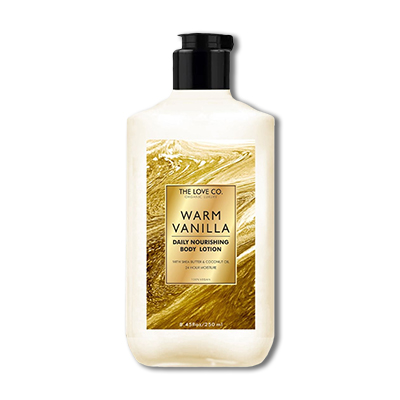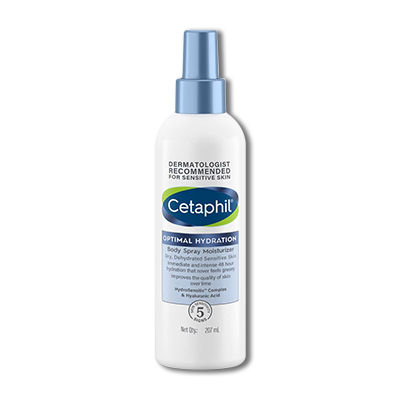
- All
- Health & Hygiene
- Lips
- Makeup
- Face
- Hair
- Skincare
- Body
- Cheeks
- Hands & Feet
- Eyes
- Fragrance
- Tools & Brushes
- Gift Packs
- Inclusivity
- Buy 2 Pay 1
- Cossouq Sale
- Festive Blogs
- Beauty

Face
Body
Lips
Hair
Cheeks
Hands & Feet
Eyes
Health & Hygiene
Fragrance
Tools & Brushes
Gift Packs
Makeup
Inclusivity
All
Skincare
Buy 2 Pay 1
Cossouq Sale
Festive Blogs
The Ultimate Guide to Choosing the Right Moisturizer for Your Skin Type

Many of us might not even think about how to choose the right moisturizer. We may just pick any that fits our budget, right?
Sometimes, you might get lucky, and it may suit your skin type. However, your skin needs the right type of love, and hence, you should pick only the best moisturizer. To find out how, let's check this blog. Moreover, we have also shared 5 moisturizing mistakes that we all make because of unawareness.
Why Do You Need A Moisturizer?
Whether you have dry or oily skin, moisturizers are an important part of your routine. It helps in healing and soothing skin. Maintaining the skin barrier is crucial to reduce dryness, flaking, itching, and irritation of the skin. Using a moisturizer is a natural personal care that no one skips.
Your Guide on How to Choose the Right Moisturizer
We often struggle to know the right skin type. Sometimes, we feel it is oily, and other times, you may feel it's a combination. If you are someone like this, then check the characteristics below to know what your skin type and what moisturizing ingredients you need.
Note: Always perform a patch test when trying new products, and consider consulting with a dermatologist for personalized recommendations based on your specific skin sensitivities.
How to Choose a Moisturizer for Dry Skin?
People who have dry skin will feel tightness and roughness. They may also observe flakes and lines. For dry skin, people should look for thick ingredients like shea butter, cocoa butter, glycerin, ceramides, and oils. You can also have a look at the table for details.
|
Ingredients |
Functions |
| Hyaluronic Acid | Keeping the skin hydrated and plump. |
| Ceramides | Prevents moisture loss and improving hydration. |
| Dimethicone | Prevents moisture loss. |
| Lactic Acid or Urea | Exfoliate and remove dead skin cells, promoting smoother and hydrated skin. |
| Antioxidants (Vitamins C and E) | Protects the skin from environmental damage and supports overall skin health. |
| Omega-3 and Omega-6 | These nourish and hydrate the skin, promoting a healthy barrier. |
 |
One of the best moisturizer for your skin The Love Co. Warm Vanilla Body Lotion With Shea Butter & Coconut Oil. It is perfect go to go for dry skin as it is loaded with shea butter and 15 different kinds of butter. But it is also non-sticky at the same time. This bottle elixir promises you 48 hours of moisturization. |
How to Choose a Moisturizer for Oily Skin?
If you have breakouts often, your skin looks shiny, and makeup easily waves off, then you have oily skin. One should look for ingredients like glycerin, hyaluronic acid, ceramides, zinc PCA, and Pantothenol. These are soothing on the skin and do not clog it.
Have a look at the table below for detailed information and ingredients.
| Ingredients | Functions |
| Water-based formulas | Lightweight and less likely to contribute to a greasy feel on the skin. |
| Niacinamide (Vitamin B3) | Regulates oil production, and helps in maintaining skin barrier function. |
| Salicylic Acid | Exfoliates and unclogs pores. |
| Non-comedogenic oils | These can provide moisture without clogging pores. |
| Mattefying agents (like silica) | Helps to control excess shine throughout the day. |
| Green Tea Extract | Contains antioxidants and anti-inflammatory properties. |
How to Choose a Moisturizer for a Combination Skin?
If your T-zone tends to be oily (forehead, nose, chin), with generally dry cheeks and frequent blackheads, you belong to this category. Buy moisturizers that include hyaluronic acid, peptides, and squalane.
Don't miss out on the table below for detailed ingredients.
| Ingredients | Functions |
| Lactic Acid or Glycolic Acid | Gently exfoliates, promoting smoother skin texture. |
| Mattefying agents (like silica) | Controls shine in oily areas. |
| Water-based formulas | Lightweight and suitable for various skin types. |
| Jojoba Oil | A non-comedogenic oil that provides moisture without clogging pores. |
| Niacinamide (Vitamin B3) | Helps regulate oil production, reducing excess shine in oily areas and supporting the skin barrier. |
How to Choose Moisturizers for Sensitive Skin?
If your skin is often red, and it feels patchy, dry, itchy, and irritated. Then you are sensitive, my friend.
Once you know what your skin type is, you can buy moisturizers that contain glycerin, Petrolatum, and Hyaluronic acids. Look for fragrance-free, hypoallergenic moisturizers.
| Ingredients | Functions |
| Hyaluronic Acid | Provides hydration without causing sensitivity. |
| Chamomile | Known for its calming and anti-inflammatory properties. |
| Oat Extract | Has anti-inflammatory properties and can help soothe sensitive skin. |
| Calendula | Known for its anti-inflammatory and calming effects. |
| Ceramides | Support the skin barrier without causing irritation. |
| Allantoin | Helps in soothing and promoting skin healing. |
| For your personal skincare, try Cetaphil Optimal Hydration Body Spray Moisturizer. This is best for sensitive skin and dehydrated skin people. It is filled with the goodness of hyaluronic acid, sunflower seed oil, pro-vitamin B5, and vitamin E. You can take a bet on this as it is dermatologist-tested and clinically proven to be gentle on sensitive skin. |  |
Moisturizing Mistakes
Now that you know how to pick the right moisturizer, let's learn what are some of the mistakes you have been making while applying moisturizers.
Incorrect Amount Moisturizer
Many of us use a small amount of moisturizer either to save it because it's expensive or someone overuses it to get the optimum results. However, neither of the ideas is good. You are making a mistake. One must read the label instructions for the right amount, or you can simply follow the universal amount that is pea size. Also, don't just rub it. You can apply dots all over the face and apply in a single direction.
Not Moisturizing Twice a Day
We mostly use moisturizers when we leave the house in the morning and think that's it; the work is done. But, no, it is not because it won't last throughout the day.
You need to hydrate your skin even at night time. It is the best skin repair time. But if you wash your face more often, then you can apply after your wash.
Not Following the Right Order
The basic rule follows: clean, hydrate, and protect. You have to first wash your face, apply serum or moisturizer, and then sunscreen.
Skipping Moisturizer When Skin Feels Oily
Yes, you read it right. Many fear that applying moisturizer on oily skin may trigger sebum production, but the reality is your skin produces more oil when it is dehydrated! When it is dry, it produces more sebum. Thus, when you skip moisturizer during those days, it will be more prone to oil production.
Skipping It On Acne Days
Applying moisturizer will not trigger your acne, but when you skip it, it will become dehydrated and produce more acne. Thus, more pores will be blocked.
Tip: Use oil-free or gel moisturizers to hydrate your skin.
FAQs
- How does climate influence the choice of a moisturizer?
In humid climates you should opt for lightweight, water-based moisturizers, while in dry climates you can choose richer formulations to combat dehydration.
- Is it necessary to use a separate moisturizer for daytime and nighttime?
Yes, use a separate moisturizer for daytime and nighttime. Daytime moisturizers often include sun protection, while nighttime moisturizers focus on repair. Using both enhances overall skin health.
- Are there specific moisturizers recommended for aging skin?
Yes, there are specific recommendations. Look for anti-aging ingredients in moisturizers like retinol, peptides, and antioxidants to address signs of aging and promote skin elasticity.
Conclusion
Every skin has different needs, and moisturizing is an important routine that should not be overlooked. This blog on how to choose the right moisturizer for your skin is the right fit. In this, you will know how oily skin and people with dry skin should opt for moisturizers. Log into Cossouq.com and get your hands on the Best Skin Hydration Products.





